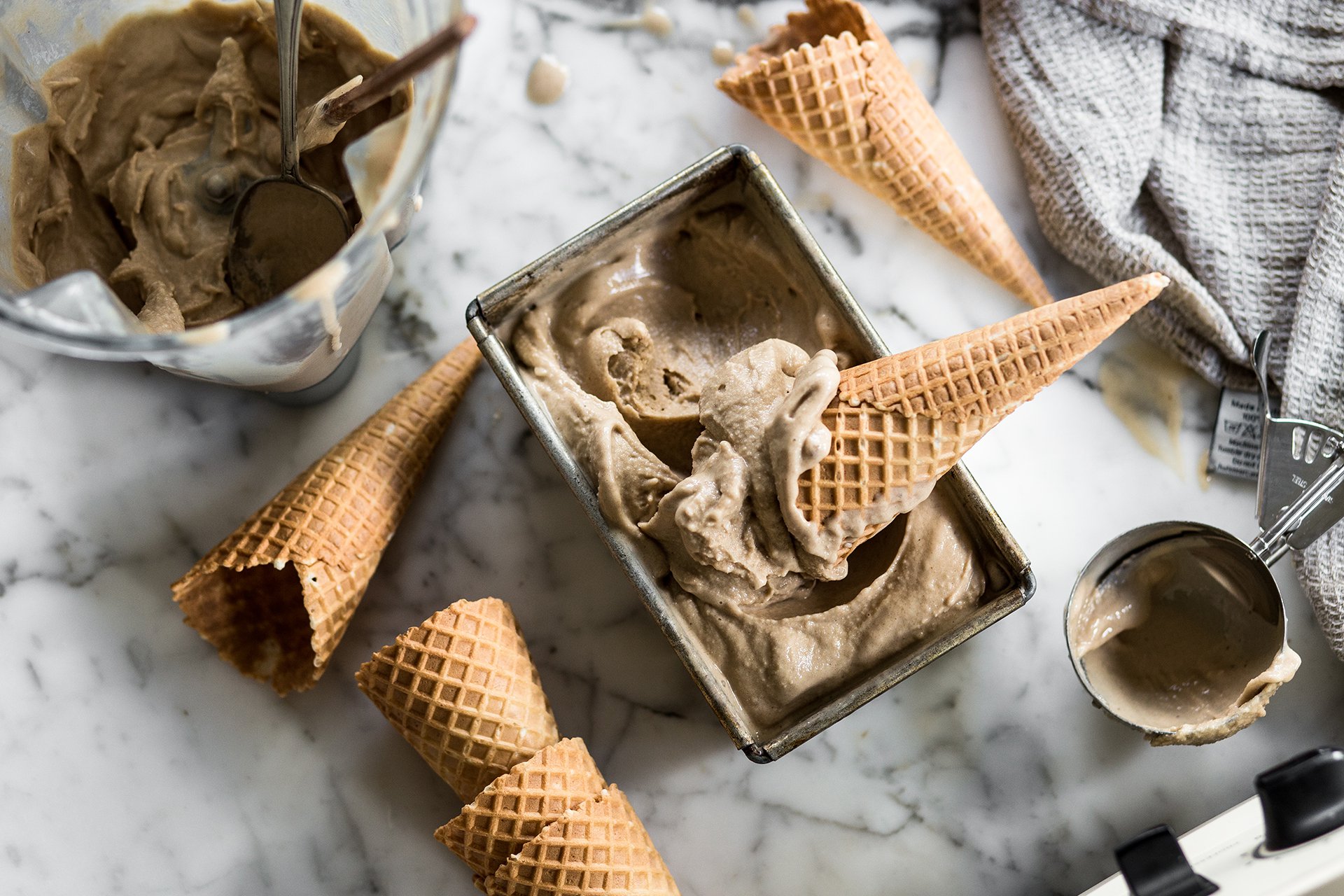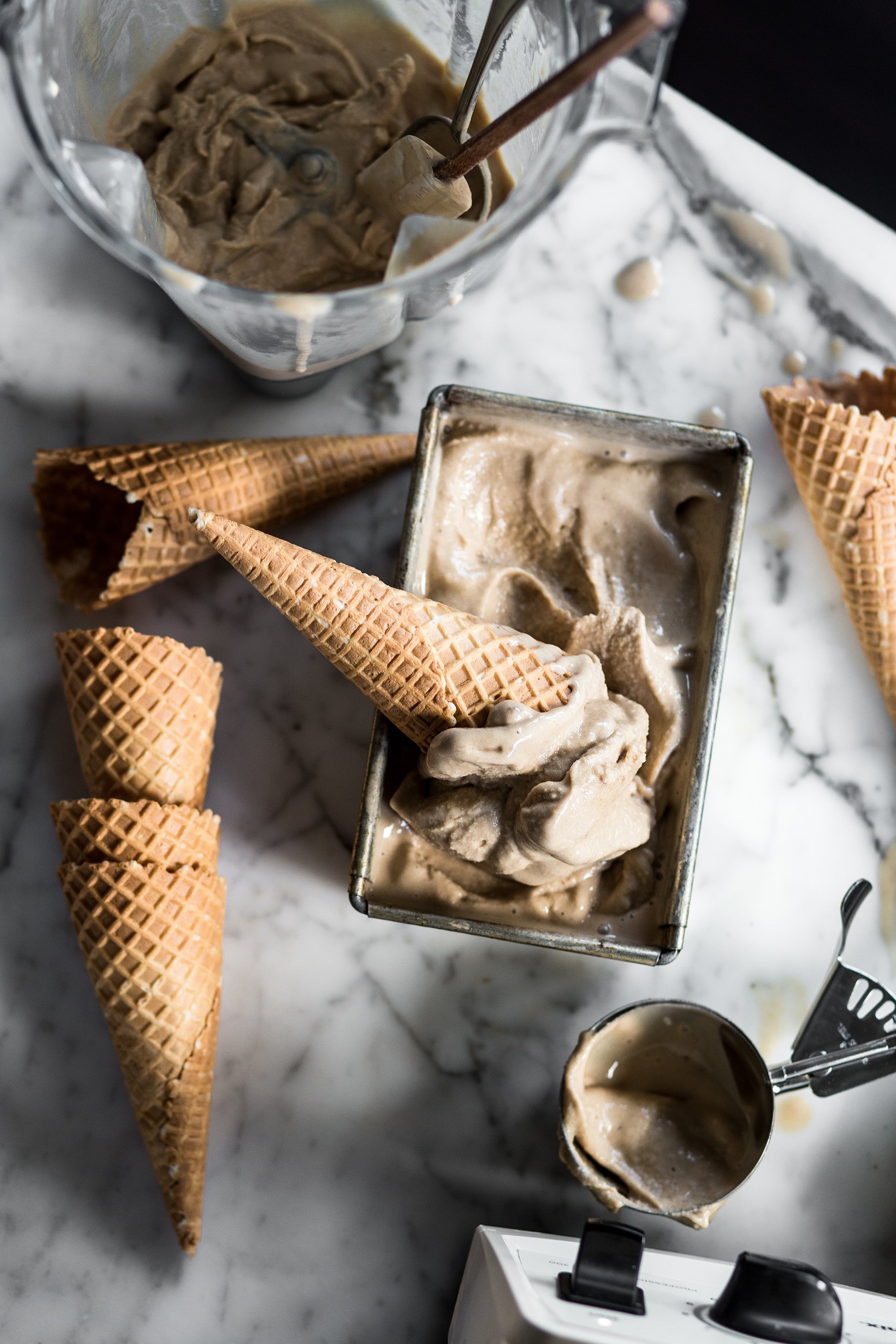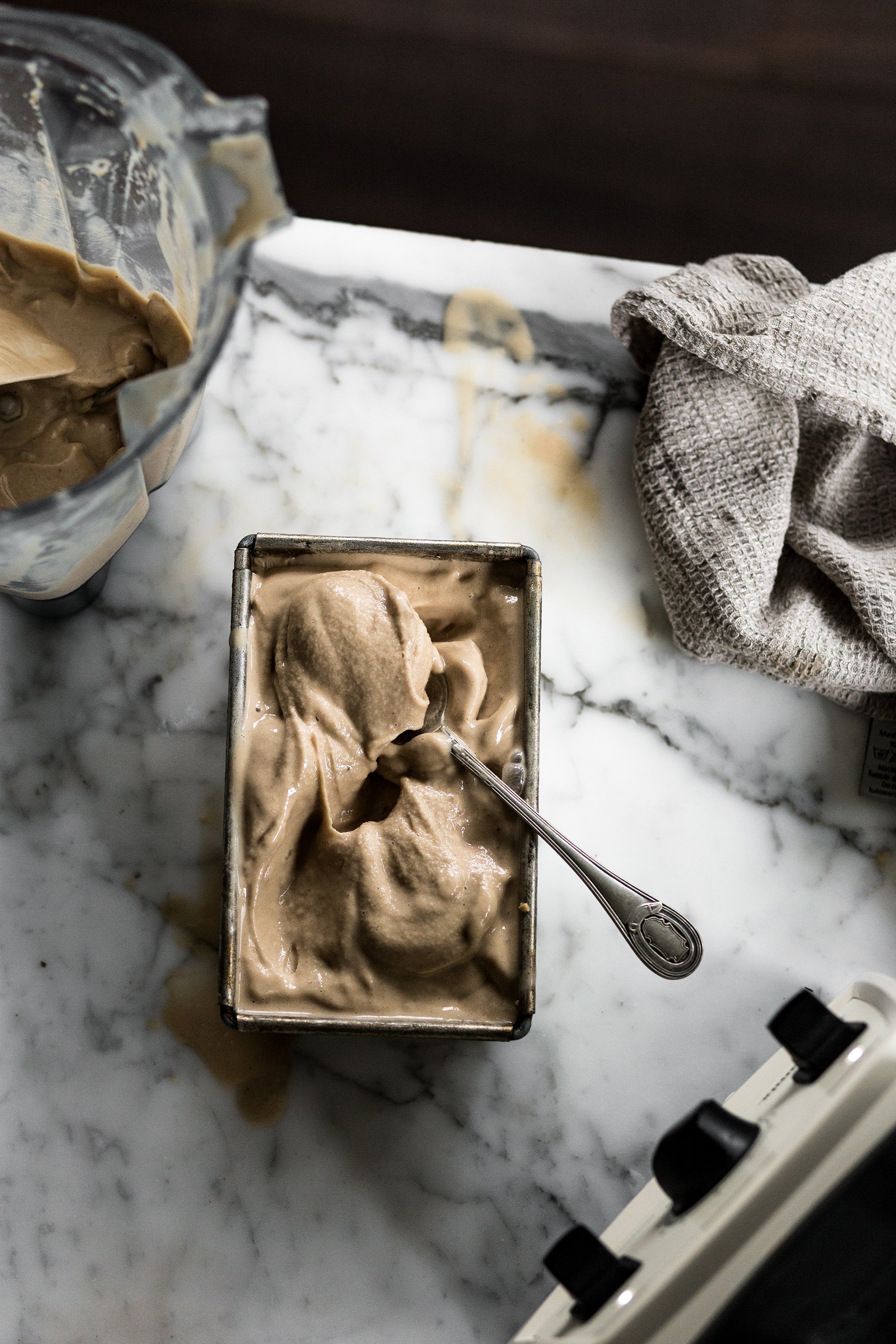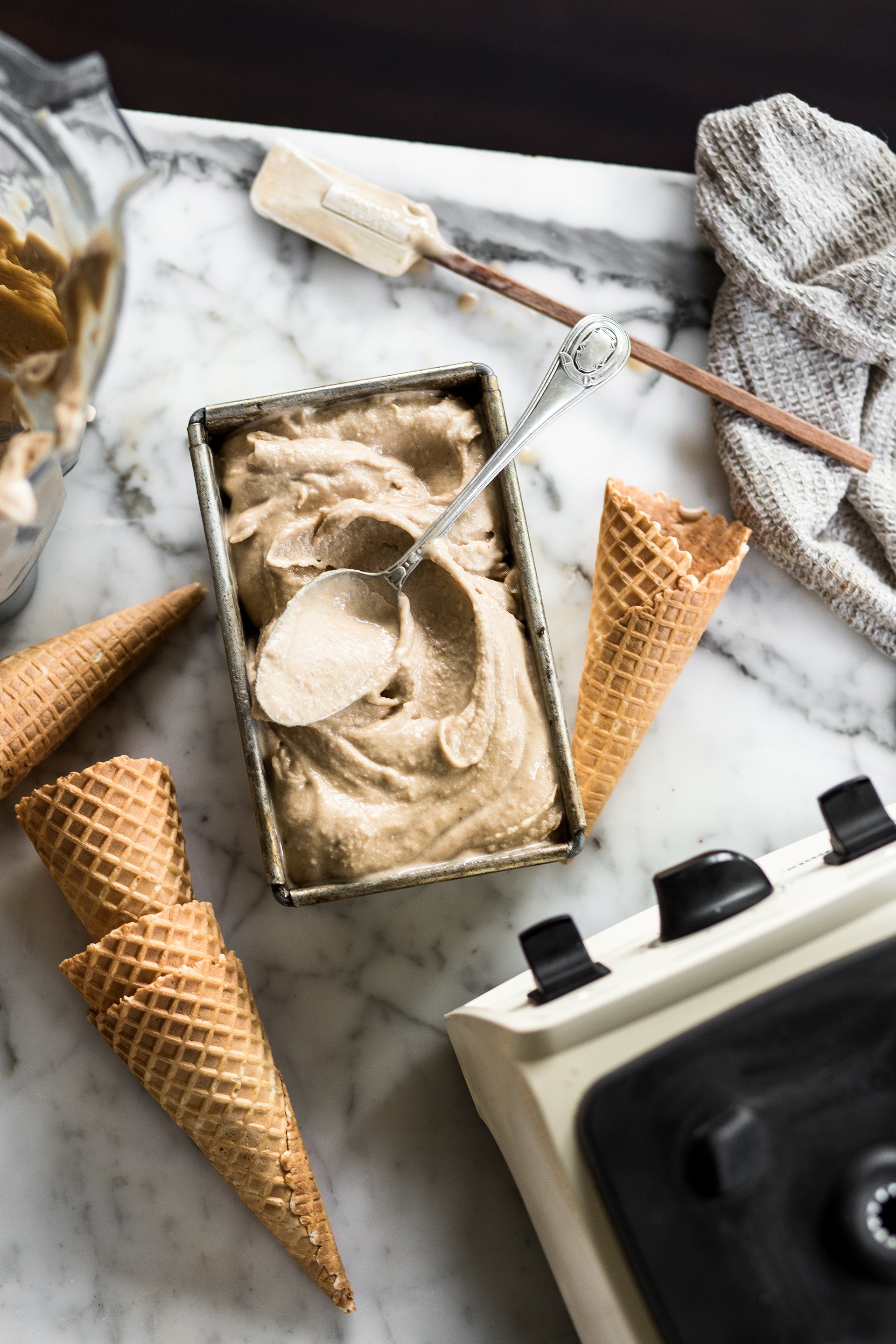A no-churn vegan ice cream
Admittedly, I live about three minutes walk from a supermarket, another ten to a health food store and other places within walkable distance to good vegan ice cream. Duck Island's first Auckland outpost is dangerously close. Even without the convenience, I'm a daily food shopper and have always loved cooking and feeding myself, and my partner. I find this incredibly satisfying. As such, given my proximity to vegan ice cream, this recipe is not convenient — it is however different, sweet, salty, super creamy, umami, practically magical. Preparing non-churn ice cream requires patience, some manual labour, but for the love of preparing food, for me at least, this ice cream was worth it.
The rise and rise of the vegan ice cream market
I remember when vegan ice cream was something you'd find in the darkest depths of a health food store. No longer associated with Birkenstocks, body hair and fanny packs — which are ironically now cool, today wellness is, I think representative of progression. People are starting to understand that the wellness interest is the modern lifestyle, a daily pursuit, not something you do to prepare for your summer holiday. And so we are seeing such rapid increases in the demand for vegan ice cream people are awakening to the fact that either a vegan diet or leaning heavily towards one is better for human health, the animals and the environment. Do you remember when Oatly had to increase production by 1,250% in 2018? Oatly still couldn't keep up with demand. Demand for dairy-free milk has been key in propelling the demand in non-dairy ice cream market globally — currently valued at USD 455.9 million, expected to be worth USD 1.2 billion by 2025. A world that primarily thrives on plants is a better world, a healthier place, and it is a world changed — and we are changing it.







